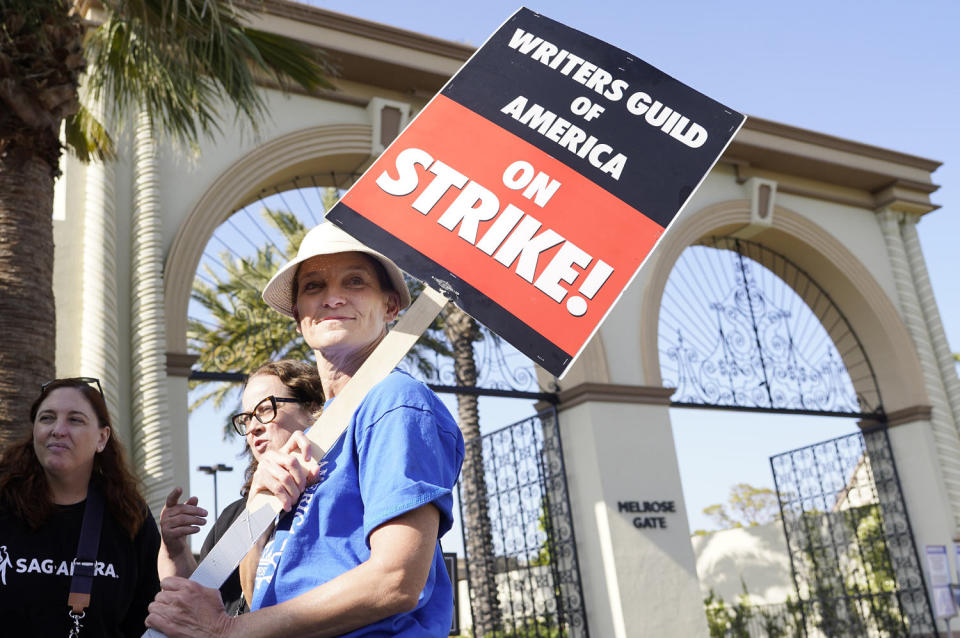Is an end to the Hollywood strike in sight? Studio heads join talks
Hollywood writers and producers could be nearing an agreement to end the strike that has paralyzed the entertainment industry as high-level talks entered a second day Thursday, with major studio heads now at the table, and the two groups planned to meet again Friday.
A source close to the negotiations said that talks Wednesday were "productive" and that there was hope for "more progress" as high-level executives attended the negotiations for the first time since the strike began months ago.
The Writers Guild of America and the Alliance of Motion Picture and Television Producers met Thursday and plan to do so again on Friday, a spokesperson for the writer's guild, known as the WGA said late Thursday in a message to members.
The AMPTP is a trade group that bargains for the major studios and streaming services. (The group represents NBCUniversal, the parent company of NBC News.)
Until now talks have been led by top AMPTP staffers and labor relations representatives, but studio heads, including Disney's Bob Iger and Netflix's Ted Sarandos, have now taken a seat at the table, the source said — signaling a potentially significant shift.
CNBC reported that the two sides had hoped to finalize a deal Thursday.

WGA members have been on strike since early May. Actors joined the picket line in July in a separate dispute, bringing production on many Hollywood television shows and films to a halt.
The dispute has centered on issues including pay, working conditions, writers’ demands for greater royalties for their work, known in the industry as residuals, and stricter protections against the use of artificial intelligence.
The labor stoppages have put many rank-and-file members in precarious financial situations and brought the industry to a virtual standstill.
Among the shows and films that have been affected are “Gladiator 2” and “Mission: Impossible — Dead Reckoning Part Two," along with the hit shows "Stranger Things" and "Yellowstone."
Some independent films received waivers from guilds to keep shooting, while Drew Barrymore and Bill Maher this month walked back plans to resume production on their talk shows amid the strike.
Barrymore said she decided to press "pause" on the decision to resume production after she faced backlash.
“I have listened to everyone, and I am making the decision to pause the show’s premiere until the strike is over,” Barrymore wrote. “I have no words to express my deepest apologies to anyone I have hurt and, of course, to our incredible team who works on the show and has made it what it is today.”
Maher similarly said he would delay production in respect of the strikes after his show, "Real Time with Bill Maher," was set to resume production.
“My decision to return to work was made when it seemed nothing was happening and there was no end in sight to this strike,” Maher wrote on X, formerly known as Twitter. “Now that both sides have agreed to go back to the negotiating table I’m going to delay the return of Real Time, for now, and hope they can finally get this done.”
The strike has affected not only Hollywood workers and viewers, with concerns also mounting over its economic impact. In a recent Securities and Exchange Commission filing, Warner Bros. Discovery said it assumed it would be "negatively impacted" by the strikes by up to $500 million.
This article was originally published on NBCNews.com

